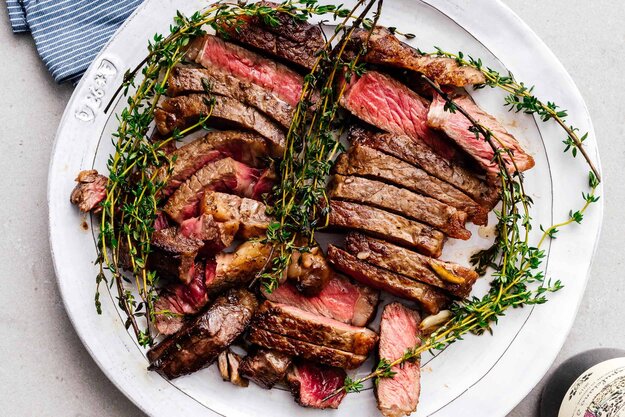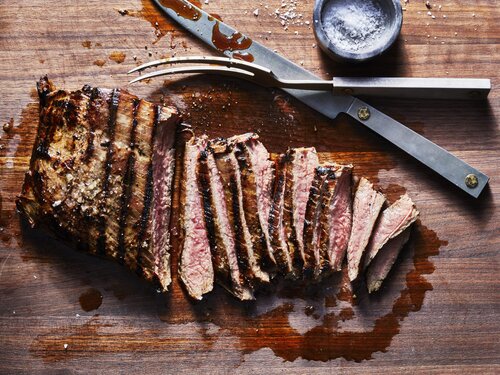Steak Nutrition: Understanding the Facts About Calories, Protein, Fat, Carbs, and Vitamins
Steak is a popular dish enjoyed by people all around the world. It is a type of meat that comes from beef and is known for its rich flavor and tender texture. While it is a delicious food, many people are curious about its nutritional value. In this detailed blog, we will take a closer look at the nutritional content of steak and break down the facts about calories, protein, fat, carbs, and vitamins. So, let's get started.
Calories in Steak

Steak is a high-calorie food, which means that it contains a significant amount of energy. The number of calories in steak can vary depending on the cut and the size of the portion. A 3.5-ounce serving of ribeye steak contains approximately 290 calories, while a 3.5-ounce serving of sirloin steak contains approximately 200 calories. It is important to keep in mind that consuming too many calories can lead to weight gain and other health problems, so it is important to enjoy steak in moderation.
Protein in Steak
Steak is an excellent source of protein, which is an essential nutrient that our bodies need to build and repair tissues. A 3.5-ounce serving of steak can contain anywhere from 25 to 30 grams of protein, depending on the cut. Protein is important for maintaining muscle mass, and it can also help you feel full for longer periods of time, which can help with weight management.
Fat in Steak
Steak contains both saturated and unsaturated fats. Saturated fat is considered a "bad" fat because it can increase your risk of heart disease and other health problems. Unsaturated fat, on the other hand, is considered a "good" fat because it can help lower cholesterol levels and reduce the risk of heart disease. A 3.5-ounce serving of ribeye steak contains approximately 22 grams of fat, while a 3.5-ounce serving of sirloin steak contains approximately 10 grams of fat. It is important to choose lean cuts of steak and to limit your intake of saturated fat.
Carbs in Steak
Steak is a low-carb food, which means that it contains very little carbohydrates. A 3.5-ounce serving of steak contains approximately 0 grams of carbohydrates. This makes it a good choice for people who are following a low-carb diet or who are trying to manage their blood sugar levels.
Vitamins in Steak

Steak is a good source of several vitamins, including vitamin B12, vitamin B6, and niacin. Vitamin B12 is important for maintaining healthy nerve cells and red blood cells, while vitamin B6 and niacin are important for energy production and metabolism. A 3.5-ounce serving of steak can contain up to 50% of the recommended daily intake of vitamin B12.
What Is The Healthiest Cut Of Steak
The healthiest cut of steak is one that is lean and has less fat. Some good options include sirloin steak, flank steak, and tenderloin steak.
Is Steak Good For You?
Steak can be a healthy food when consumed in moderation and as part of a balanced diet. It is a good source of protein, which is essential for building and repairing tissues in the body. Steak also contains several vitamins, including vitamin B12, vitamin B6, and niacin. However, it is important to keep in mind that steak is a high-calorie food and can be high in saturated fat, which can increase your risk of heart disease and other health problems. Choosing lean cuts of steak and moderating your portion size can help ensure that you are consuming steak in a healthy way. Additionally, incorporating a variety of other nutrient-rich foods into your diet is important for overall health and well-being.